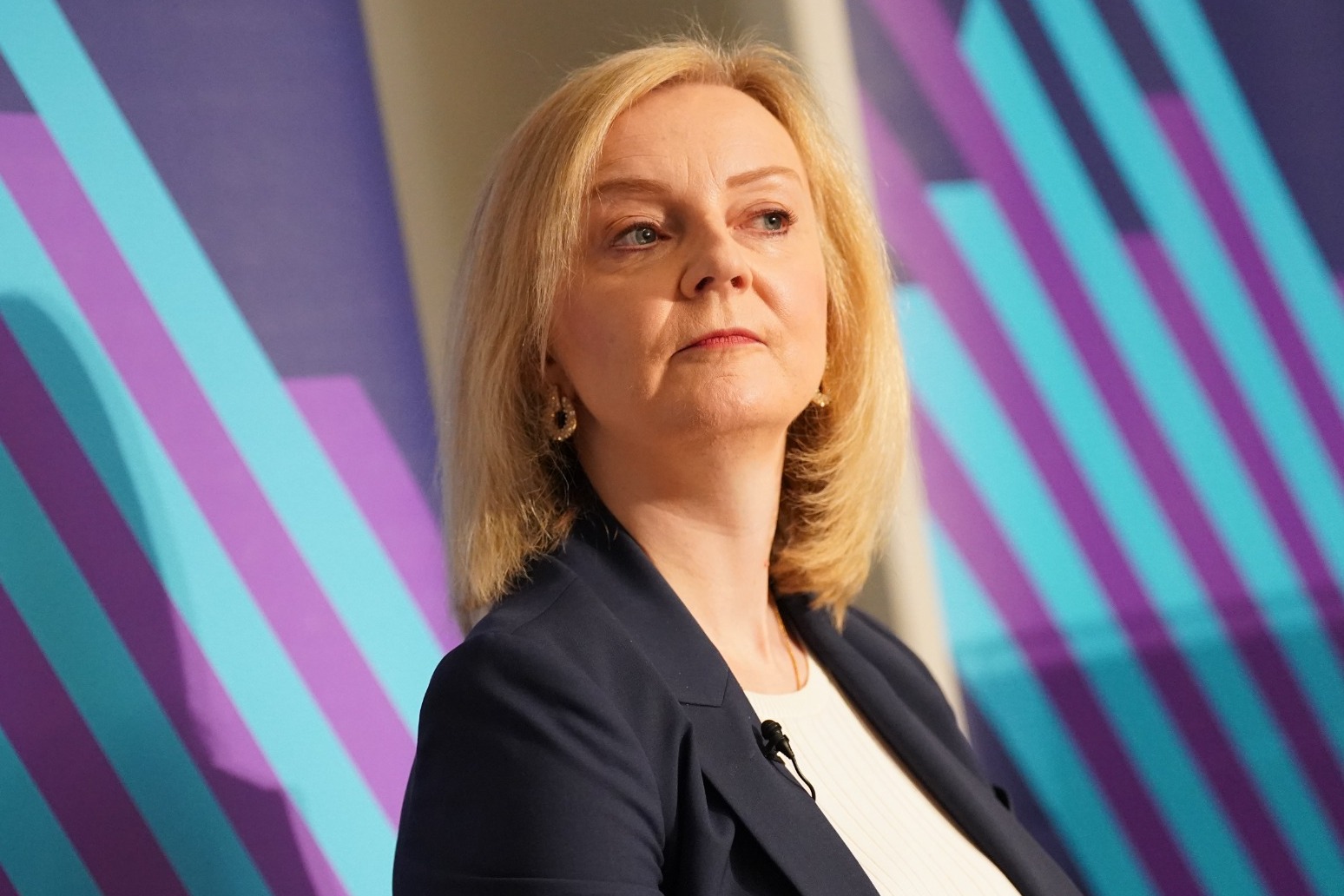
Liz Truss hit out economists and civil servants as she defends mini-budget
Liz Truss has hit out at economists and supposed “institutional bureaucracy” as she defended her mini-budget a year on.
The former prime minister used a speech at the Institute for Government think tank on Monday to justify decisions made during her brief spell in Number 10, calling it unfair to say she had pursued unfunded tax cuts.
Ms Truss was forced out of office last October after the budget of £45 billion of tax cuts outlined by her chancellor Kwasi Kwarteng sparked an economic crisis.
Since then she has continued to defend and build on her brand of conservatism in a bid to find a solution to stagnant growth.
Pitched as her first significant intervention on the economy since leaving office, Ms Truss urged the Government to cut taxes, shrink welfare spending and raise the retirement age.
She declined to express regret about the consequences of her doomed package of £45 billion of tax cuts last year and insisted it would only have made a “marginal difference” to the deficit.
“I admit the communication wasn’t as good as I would want it to be,” she said in the Q&A after her speech.
She said was in the “unusual situation” of a Tory leadership contest being followed by the death of the late Queen, adding: “Of course I would’ve wished things had turned out differently.”
But she defended her policies, saying: “The tax cuts we were introducing were not major tax cuts, they would have made a fairly marginal difference in fact to the level of the deficit.
“What they were about was showing a new direction for Britain.”
Her government felt pressured by the Bank of England into committing to a “counterproductive” U-turn on her tax plans, the former Tory premier said.
Ms Truss admitted she had never heard of the liability driven investment (LDI) pension funds that were hit by her mini-budget until after the economic crisis struck.
“On the LDIs, there clearly wasn’t enough information.
“So the fact that we were completely blindsided by LDIs… I literally hadn’t heard of what an LDI was until the following Monday, which was quite a large part of what happened in the market.”
But she also blamed media organisation for failing to do a “brilliant job” of analysing the LDI crisis, singling out the BBC.
“I don’t think there was an effective critique of the Bank of England and it really goes back to this point about institutions and politicians ending up having all of the responsibility, but not necessarily the power.”
Ms Truss railed against resistance against her plans from international economic bodies and Whitehall.
Asked about examples of when civil servants stopped her from fulfilling her goals, she said she was “writing a book about this”, one of several instances of her plugging the upcoming release.
“Certainly as a politician, trying to deliver what I believed people had voted for, there was a lot of institutional bureaucracy in the way.
“And even during the leadership election campaign, and maybe this did not make me popular with the OBR (Office for Budget Responsibility) and the Bank of England, I pointed out that there was an orthodoxy in Britain about economic policy and I tried to challenge that orthodoxy.
“And I didn’t find a massive level of support, frankly, from those institutions.”
Ms Truss lashed out at former Bank of England governor Mark Carney after he said that instead of delivering “Singapore-on-Thames”, she delivered “Argentina-on-the-Channel”.
Mr Carney was “defensive” about his role in the “25-year economic consensus that has led to low growth across the western world”, she said.
“I again think, of course politicians should be held accountable and responsible for what we do, but when there are people with significant power, you know, I don’t feel that the same questions are necessarily asked about them.”
She promised she will be “saying more” about her economic vision at the Tory conference in October.
Prime Minister Rishi Sunak did not watch his predecessor’s speech, but Downing Street defended his stewardship of the economy.
The Prime Minister’s official spokesman said both Chancellor Jeremy Hunt Mr Sunak “are committed to growth”.
“The Chancellor has set out our strategy to target the areas where we think there is most opportunity for growth, including on research and development, and other areas, the spokesman said.
“We are confident that by having inflation and through other means we will be able to further boost growth.”
Ms Truss twice dodged questions about whether she will withdraw her resignation honours, as Labour called on the Prime Minister to block her list.
Ahead of the speech, Labour frontbencher Jonathan Ashworth told Sky News: “If Rishi Sunak had any backbone, he would block this Liz Truss list today, because I don’t think businesses, hardworking families paying so much more on their mortgage think that list should go ahead.
“In many ways it’s a kick in the teeth.”
Liberal Democrat Treasury spokeswoman Sarah Olney said: “Liz Truss’s refusal to apologise to the families who have seen their finances ruined by her botched budget shows just how out of touch she is.
“To rub salt in the wound, Truss and her fellow Conservative ministers pocketed thousands of pounds of taxpayers’ cash in handouts after causing an economic car crash and fleeing the scene of the crime.
“The British public will never forget this shambolic Conservative government for trashing the economy and sending mortgage rates spiralling.
“It is time to change the rules over ministerial severance pay for good so that Liz Truss and other former Conservative ministers cannot again profit from their own failure.”
Published: by Radio NewsHub